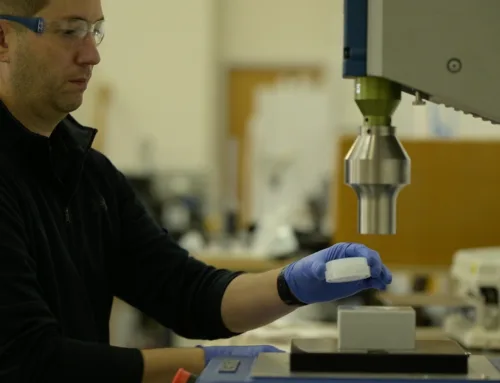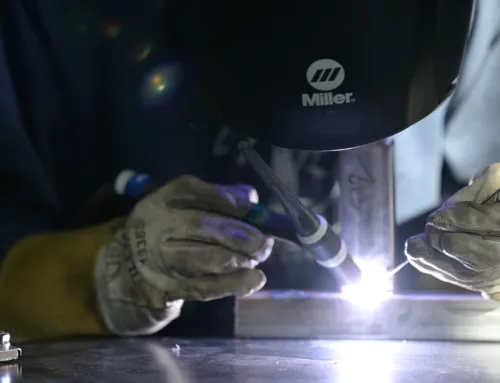The American manufacturing renaissance is on as “Made in America” makes a roaring comeback, with U.S. companies—General Motors, Intel, and U.S. Steel among them—moving factories back from China to domestic shores. At the same time, the U.S. is experiencing the greatest explosion of new companies in history, with investors pouring over $700 billion into startups in 2022. Spurred by the global supply chain chaos, the pandemic, and the U.S.-China trade crisis, the nation is now poised on the cusp of what could be one of the most historic eras of invention and manufacturing since the Industrial Revolution. This is the intersection where Dave Palmstein lives, breathes, thrives—and delivers.
Dave was one of the first American business pioneers to take manufacturing to Asia over 30 years ago; a visionary leader with a well-known record of not only building new divisions for multinational corporations, but helping to grow fledgling companies into thriving enterprises. His career spanned from factory development manager and process division manager for highly automated robotic manufacturing operations in the Far East and Colorado, to the founder and managing partner for over 10 highly technical product companies, and leadership roles in over 35 tech startups. He’s also the author of a performance management model designed to build high-tech companies at an 80% success rate with ROIs greater than 35%.
Now, as the founder of Birch Creek Innovations (BCI), Dave leads an enterprise on a mission to help revive and grow America’s status as an innovation and manufacturing powerhouse with “Flex Factories,” a groundbreaking model three decades in the making. “This will enable us to do things we’ve never even dreamt of,” Dave says. “We are forging ahead, building flex facilities, coupling humans with robots to produce smart products, and furiously charging forward to become the leader of Made In America operations.” And he’s bringing a swelling number of companies and investors with him.
Birch Creek Innovations: “Flex Factories” Fueling the Comeback of U.S. Manufacturing
Headquartered near Kansas City, BCI’s goal is to make “Made in America” synonymous with “globally competitive,” with an innovative and highly competitive disruptive technology platform for product development and domestic manufacturing. As a single-source, high-efficiency development center and “Flex Factory,” BCI provides client customers who produce technology products, such as medical devices, computer peripherals and IoT devices, with services, systems and contract engineering for the entire product lifecycle—development, pre-production ramp, volume manufacturing, and product replacement. BCI utilizes Industry 5.0 technologies, a proprietary six-phased development model, and human/robotic coupling for highly competitive manufacturing to help customers outperform their competitors. As BCI continues to support the growing demand from companies across industries, Dave has also established the Made in America Institute to help accelerate the revival of American manufacturing and innovation.
We sat down with Dave to learn more about BCI, their Flex Facilities, and how companies and investors alike stand to benefit from the reinvention of “Made in America.”
Dave, you spent over 30 years developing a product development and manufacturing model that takes companies from idea to a thriving enterprise to exit. Tell us about this and how it’s benefiting not only your clients, but investors.
The model provides a clear and methodical roadmap to successfully build product companies—not just products. It starts with innovative development for products that solve significant problems, thus creating great demand and company value. Product designs are transferred to manufacturing at lightning speed where full volume production and yields are reached in record times. Through human/robotic coupled work centers, products are produced at or below Far East production costs. When production is at full scale, new product versions are immediately developed so as to outpace any competition. As a result of this proven model and flexible factories, customers receive high-quality products in very short time frames; companies become highly profitable and extremely competitive; their values skyrocket; and investors are handsomely rewarded with exceptional equity valuations.
For well-established companies that are moving their factories back to the U.S., the process can often take years. How is Birch Creek helping them simplify it?
To really be successful for future “Made in America,” these companies must develop a highly efficient operation. We help companies by working with them to develop what we call a “Flex Factory,” Most companies need to start with a clean slate operation and maybe even a new division of the company. The key is to not build or alter a facility to build a single product, but to build an infrastructure to design and produce high quality, globally competitive future products that are yet unknown. Emphasis on speed, flexibility, innovation, and cost in every aspect of the Flex Facility is an absolute must.
This Flex Facility and the operations within it must be able to change over from one product to another within minutes or hours instead of weeks, months, or even years, as is common today. Costs must be cut one-third to one-half of what is common today. We use a program we call “Near Zero,” in the Flex Factory to squeeze out labor content, reduce utility and facility costs, network all equipment to Industry 5.0 standards, and optimize human and robotic capabilities. Well-established companies must leverage their buying powers with suppliers to cut lead times, chop costs, and delivery times. Long supply chains are typically broken down into supply links of domestic manufacturers and middle-supply depots are eliminated wherever possible.
As this reversal continues to accelerate, what do you see as the future outcome for U.S. companies and the economy as a whole?
For companies to be successful with Made in America programs, there needs to be a relentless pursuit to push domestic factories to be able to compete in global markets. When this is done effectively through Flex Factories, domestic companies can compete with anyone. The Made in America wave is growing and accelerating. Companies need to plan and find ways to enhance their facilities at the same pace or faster than their product development. As they do, they should experience increased growth, profits and company value, thus reducing U.S. dependency on foreign countries and return domestic manufacturing to be a dominant contributor to the U.S. economy.
Contact Dave at [email protected]
LI: Dave Palmstein
Publication: The Top 100 Magazine – The Top 100 Innovators & Entrepreneurs




